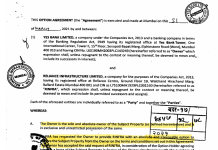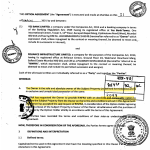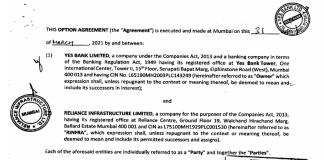The ICICI Bank Board recently staged a ringing defence of its Chief Executive Officer (CEO), Chanda Kochhar with a categorical press statement reposing trust in her. Now that statement has blown up in the board’s face. A new exposé has revealed the smoking gun: Kochhar and her family were investors in a little known firm along with Videocon International, even as she may have been overseeing the Videocon account in ICICI. Now it is merely a matter of time before the CEO is forced to step down. But the question is: Is the ICICI Bank board qualified to run any business, let alone India’s second largest private sector bank?
The daily barrage of news targeting Chanda Kochhar is impacting shareholders. The Mint exclusive on April 11, 2018, in particular, hurt investors where it hurts most – the share price, which fell 1.6% on a day when the Nifty closed flat. This was no ordinary exposé revealing the conflict of interest of Chanda Kochhar’s close family. This story highlighted that Chanda Kochhar, the Prima Donna herself, along with seven Kochhar family members, held a stake in Credential Finance in 2001 along with Videocon International. This explosive story said,
“A total of seven members of the Kochhar family—including Chanda Kochhar, her husband Deepak Kochhar and his brother Rajiv Kochhar—together held a 2% stake in Credential Finance, its shareholding pattern for that year (2001) filed with the Registrar of Companies (RoC) in 2007 showed.
In the same year (2001), Venugopal Dhoot’s Videocon International Ltd held 17.74% and its associate firm Joy Holdings held 0.8% in Credential Finance. Another major shareholder was Mahesh Chandra Punglia, holding 0.8%…
She [Chanda Kochhar] sold or transferred her shares in Credential Finance before 2010, as records during 2010 to 2014 do not show her holding any shares in the firm. The other six Kochhars continued to hold their shares at least until 2013-14, the period for which the latest data is available.
Videocon International, too, cut its shareholding to 4.88% by 2013-14. It is still [2013-14] one of the largest shareholders.”
If there ever was a smoking gun in Chanda Kochhar’s conflict of interest saga, this is it. Here is documented evidence, which ICICI Bank has not refuted, that Chanda Kochhar was a shareholder in a company along with her family members in which Videocon International, a corporate borrower of ICICI Bank, had significant shareholding. And while she exited prior to 2010, her immediate family were shareholders along with Videocon International at least till 2013-14.
Chanda Kochhar’s Wikipedia profile states,
“In 1998, she was promoted as the General Manager and headed ICICI Bank’s major client group, which handled relationships with ICICI’s top 200 clients. In 1999, she also handled the strategy and e-commerce divisions of ICICI Bank. Under Kochhar’s leadership, ICICI Bank started building the nascent retail business in 2000 focusing largely on technology, innovation, process engineering and expansion of distribution and scale. In April 2001, she took over as executive director.”
N Vaghul, the former chairman, ICICI Bank in an interview with CNBC TV18 on April 2, 2018 stated, the
“Videocon group had been dealing with ICICI Bank since 1985 [4:47 min in video link]”.
The relationship between ICICI Bank and the Videocon group has been continuous, except for a brief period in 2004. More importantly, in the period from 1998 till at least 2000, Chanda Kochhar, as general manager, was in charge of the major corporate client group, which would have included Videocon. During or slightly after the time she was elevated to the board of directors, she and her family members had an equity stake in a company in which Videocon International was a significant shareholder.
The central issues which need to be addressed are, one, whether a bank official in charge of the top 200 companies in the bank could be a shareholder in a company in which one of its corporate clients too is a shareholder; and two, whether such an obvious conflict of interest was disclosed to the bank. And if it was indeed disclosed, how could the bank permit such an investment by a senior official being groomed for a board position.
Chanda Kochhar’s subsequent disposal of her shares in Credential Financial sometime prior to 2010 is irrelevant, as the very fact that she and her family members were shareholders in a company where Videocon International was also a shareholder is a major conflict of interest, especially as she occupied a very sensitive post which oversaw the Videocon account.
The fact of the Kochhar family investment in Credential Finance along with Videocon International till at least 2013-14 renders ridiculous the ICICI Bank press statement of March 28, 2018. That statement attempted to defend Chanda Kochhar’s husband’s investment in NuPower Renewables in which the Videocon group had a stake and the Videocon consortium loan provided by the bank in 2012. The statement said,
“the Board concluded that there is no question or scope of any favouritism, nepotism or quid-pro-quo.
3. The Bank desires to clarify that none of the investors of NuPower Renewables are borrowers of ICICI Bank.”
The bank’s own disclosure in its press statement stated that ICICI Bank sanctioned a consortium loan to the Videocon group in 2012. Chanda Kochhar as CEO was a member of the credit committee which approved the loan and she had not recused herself from the meeting. Now we know that while she was a member of the committee, her family members were co-owners with Videocon International in Credential Finance. On what basis can she or ICICI Bank argue that this was not a conflict of interest?
Such conduct by a CEO of a major Indian bank is appalling, and if the board was aware of her investment and still ignored it, it would be a severe indictment of the entire board of directors of ICICI Bank. The competence of the ICICI Bank’s board is evident as with all its powers it was unable to investigate the Kochhar-Videocon relationship despite a complaint which went public in 2016 and it took a journalist to probe into public disclosures to uncover this relationship. With this information now in the public domain thanks to Jayshree P. Upadhyay, the journalist at the Mint, it is no longer an issue of the ICICI CEO’s kith and kin, but of her personally, and clearly makes her position as CEO untenable.
As the board of directors had hastily given her a clean chit, and apparently continues to defend her at the cost of the institution, the best hope for stakeholders in ICICI Bank is that the regulator, who has so far been a silent spectator, step in and not only order the removal of Chanda Kochhar as CEO, but also the entire board of directors, and put an end to this circus which puts Indian banking in such poor light.
DISCLOSURE & CERTIFICATION
I, Hemindra Hazari, am a registered Research Analyst with the Securities and Exchange Board of India (Registration No. INH000000594) I own ICICI Bank securities referenced in this Insight. Views expressed in this Insight accurately reflect my personal opinion about the referenced securities and issuers and/or other subject matter as appropriate. This Insight does not contain and is not based on any non-public, material information. To the best of my knowledge, the views expressed in this Insight comply with Indian law as well as applicable law in the country from which it is posted. I have not been commissioned to write this Insight or hold any specific opinion on the securities referenced therein. This Insight is for informational purposes only and is not intended to provide financial, investment or other professional advice. It should not be construed as an offer to sell, a solicitation of an offer to buy, or a recommendation for any security.














